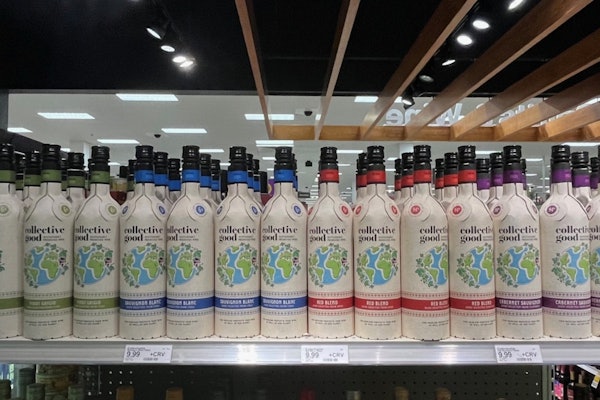After taking an essentially hands-off approach to dietary supplement labeling during President Bush’s first term, the Food and Drug Administration is suddenly all over the industry like an octopus. In November, the agency published an overall regulatory strategy that included some controversial initiatives in the area of labeling.
For the first time since the passage of the Dietary Supplement Health and Education Act of 1994, the agency published a draft guidance document that describes the kind of scientific substantiation—“competent and reliable scientific evidence”—a company should have for the “structure/function” claims on product packages. No evidence standard had ever been spelled out before, though companies are supposed to have substantiation for the claims they make.
In addition, the agency “highlighted,” in the words of Susan Walker, director, division of dietary supplement program, the existing requirement that supplement distributors disclose all “material facts” on their labels.
In an interview, Walker declined to get into a discussion of whether material facts are being left off too many labels. “But that is clearly one label element that could be explored voluntarily by supplement manufacturers and in an enforcement sense by the FDA,” she explained.
Asked whether the FDA was trying to send a particular message with its labeling initiatives, Walker answered, “We want to see accurate labels on products. Inaccurate labels should be corrected or removed.” About 69% of supplements carry claims on labels, most of them related to structure or function, according to the FDA.
Product claims
Structure or function claims were authorized under the DSHEA. Dietary supplement manufacturers do not need to obtain FDA approval prior to marketing a product and designing a label making structure or function claims. If a dietary supplement label includes such a claim, it must state in a “disclaimer” that FDA has not evaluated the claim.
Up until now, in the absence of FDA pre-approval and any label guidance, supplement marketers were pretty much free to write labels that were anywhere between fact and fiction.
FDA enforcement against mislabeled dietary supplements has been very, very limited. Joe Baca, director of compliance for the FDA’s Center for Food Safety and Applied Nutrition, tells Packaging World he cannot remember the agency ever imposing a fine on a company for mislabeling. Nor has any company executive ever gone to jail. Instead, the FDA sends warning and untitled letters, which are requests that a company stop mislabeling a product.
Adverse reaction
The potential impact of the proposed guidance was made clear by the reaction of the National Nutritional Foods Assn. (NNFA), the main industry trade group.
“While NNFA has always supported the position that claims used on dietary supplement labels be substantiated by scientific evidence, the association can offer only qualified support of the FDA’s initiative as outlined in the draft guidance because it is simply too narrow,” said David Seckman, executive director and chief executive officer of NNFA, Washington, DC. “FDA’s new focus on disclosure of ‘material facts’ on the label is of particular concern as DSHEA does not require dietary supplement labels to contain any warning information.”
Publication of the draft guidance setting a first-time scientific standard for structure or function claims was preceded by three weeks of letters from acting FDA Commissioner Lester Crawford, who may be trying to flex his attenuated muscles in the wakes of the Vioxx and antidepressant disasters. The letters, which went to eight dietary supplement distributors, informed them they were making unsubstantiated claims for dietary supplement products promoted for weight loss over the Internet.
Letters to retailers
Those letters were followed by a large mailing to major retailers of dietary supplements to inform them that products labeled with unsubstantiated claims are misbranded, and that FDA may take enforcement action against misbranded products in retailers’ possession. FDA intends to start a program of inspections of retail establishments to identify products bearing unsubstantiated claims in their labeling.
At this point, it is not clear whether the FDA is just huffing and puffing or really will start blowing fire. The agency has been lurching forward fitfully on dietary supplement labeling reform since 1997 when Congress passed the FDA Modernization Act. One of its many provisions requires the agency to consider additional regulation of supplements, which come under the purview of the 1994 DSHEA and earlier FDA authorities.
There were hearings in 1999 during which the FDA sought ideas, and then the agency issued a draft of good manufacturing practices in 2002 that was never finalized. Crawford, when he announced the new initiatives on November 4, 2004, promised to make those cGMPs final, although he did not give any specific date.
What prompted action
Two separate stimuli appear to have galvanized the FDA, if in fact that turns out to be the correct word. First, since 1997, dietary supplements have produced a number of national crises. The FDA took ephedra supplements off the market in March 2004. That was the same month the FDA sent out letters to 23 distributors of androstenedione, the supplement used by former big-league home-run hitter Mark McGwire.
Second, the FDA began a push in 2003 to focus attention on healthy nutrition, in terms of both food and dietary supplements. Enforcement efforts were directed at determining whether product label claims were science based.
Crawford tied his letters to the eight weight-loss supplement distributors to that effort. In his letter to the distributors, he wrote, “We are increasingly concerned that claims for such products are misleading to consumers and that the purported benefits of many products are not supported by sound scientific evidence, making the claims unsubstantiated.”


























